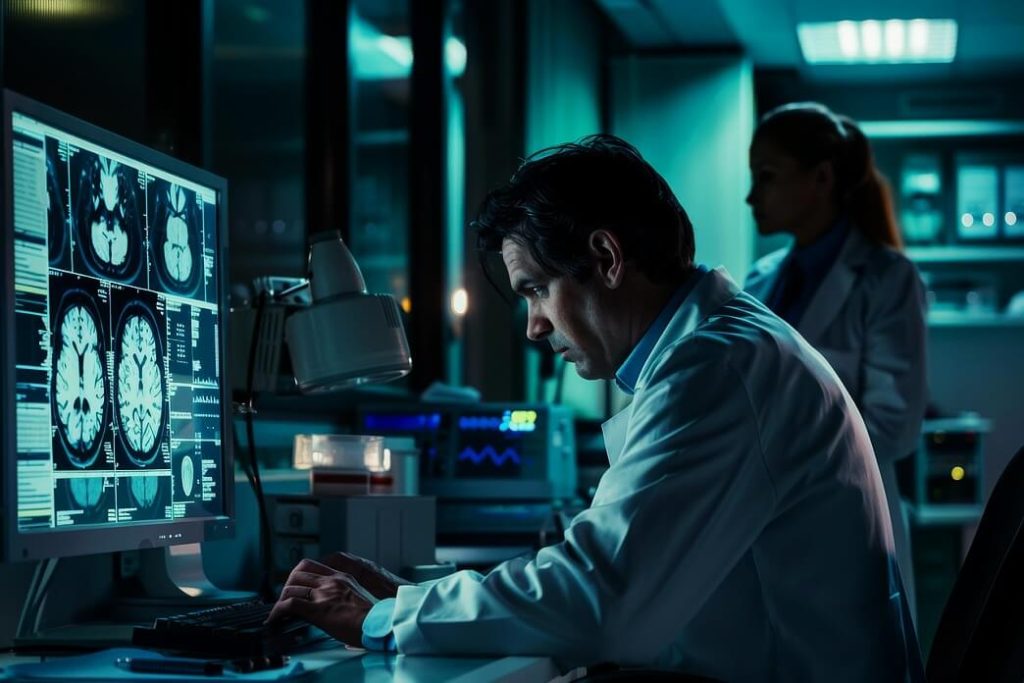
Your brain is basically a giant network of connections, kind of like the world’s most complex electrical system. Every thought, feeling, and action happens because neurons are sending messages to each other through these pathways. It’s pretty amazing when you think about it – your brain has about 86 billion neurons, and they’re constantly talking to each other.
The Brain’s Reward System Works Like a GPS
Think of your brain’s reward system as a GPS that’s always trying to guide you toward things that feel good. When you do something your brain thinks is beneficial – like eating food when you’re hungry or spending time with friends – it releases chemicals called neurotransmitters that make you feel happy and satisfied.
The main player here is dopamine. This chemical doesn’t just make you feel good – it also helps your brain remember what made you feel that way so you’ll want to do it again. This system evolved to help humans survive by making us want to seek out food, shelter, and companionship.
How Substances Hijack Your Brain’s Natural Processes?
When someone uses drugs or alcohol, these substances don’t play by the brain’s normal rules. Instead of waiting for natural rewards, they force the brain to release much larger amounts of dopamine than it would naturally produce. It’s like someone cranking up the volume on your brain’s reward system to maximum level.
For people struggling with substance use disorders, professional treatment programs like those offered at Legacy Healing Center luxury rehab can help address these complex brain changes through comprehensive medical and therapeutic support.
Different substances affect the brain in various ways, but they all mess with this reward system. Alcohol enhances certain brain chemicals that make you feel relaxed while suppressing others that keep you alert. Stimulants like cocaine flood the brain with dopamine by blocking the normal cleanup process. Opioids attach to specific receptors that control pain and pleasure.
Your Brain Starts Expecting the Artificial High
Here’s where things get tricky. Your brain is constantly trying to maintain balance, so when it gets flooded with artificial dopamine regularly, it starts to adapt. It begins producing less natural dopamine and becomes less sensitive to the chemical overall. This means the person needs more of the substance to feel the same effect – that’s tolerance.
But there’s an even bigger problem. Since the brain has adjusted to expect these artificial highs, normal activities that used to feel rewarding – like hanging out with friends, playing sports, or listening to music – start feeling boring or even unpleasant. The brain has essentially been reprogrammed to crave the substance instead of natural pleasures.
Physical Changes You Can Actually See
Scientists can now use brain imaging technology to see how substances change the brain’s structure. Long-term use actually shrinks certain areas of the brain, particularly the prefrontal cortex, which is responsible for decision-making, impulse control, and planning for the future.
The brain also grows new connections in areas related to craving and habit formation. These changes explain why people with addiction often make decisions that seem illogical to others – their brains have literally been rewired to prioritize getting the substance above almost everything else.
Why Willpower Alone Isn’t Enough?
When people don’t understand these brain changes, they often think addiction is just a matter of willpower or moral weakness. But that’s like telling someone with a broken leg to just walk it off. The brain changes caused by repeated substance use are real, physical alterations that affect how someone thinks and behaves.
The good news is that brains are remarkably adaptable. Scientists call this “neuroplasticity,” which means the brain can form new connections and even grow new cells throughout a person’s lifetime. However, healing these changes takes time and usually requires professional help.
The Recovery Process Rewires Things Back
During recovery, the brain slowly starts to heal and create new, healthier pathways. This process can take months or even years, which is why recovery is often described as a long-term process rather than a quick fix.
At first, people in recovery often experience what’s called anhedonia – the inability to feel pleasure from normal activities. This happens because their brains are still adjusting to functioning without the artificial dopamine boost. Over time, as the brain heals, natural pleasures start to feel rewarding again.
Building New Healthy Pathways
Recovery involves more than just stopping substance use – it requires actively building new, healthy patterns. When someone engages in positive activities like exercise, creative pursuits, or meaningful relationships, they help their brain create new reward pathways that don’t depend on substances.
Therapy plays a crucial role in this process by helping people identify triggers, develop coping strategies, and understand the thoughts and emotions that might lead to substance use. Support groups provide social connections that can activate the brain’s natural reward system in healthy ways.
Your Brain’s Amazing Ability to Heal
The most hopeful part of understanding how substances rewire the brain is recognizing that these changes aren’t permanent. While some effects may last longer than others, the brain’s ability to adapt and heal means recovery is always possible.
People who have been in recovery for years often report that they feel more emotionally balanced and mentally clear than they did before they ever used substances. This suggests that the recovery process doesn’t just return the brain to its original state – it can actually make it stronger and more resilient.
Understanding these brain changes helps explain why addiction is a medical condition that responds best to professional treatment, not a moral failing that someone should be able to overcome through willpower alone. With the right support and time, brains can heal and people can reclaim their lives.





